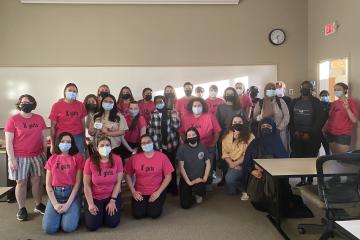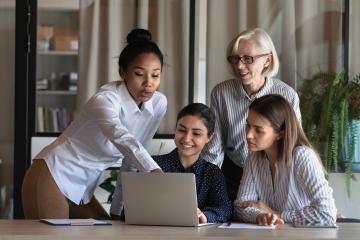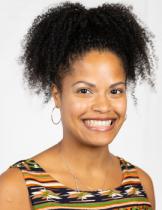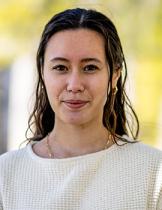
Broadening participation in economics, part one: How J-PAL North America's collaborative high school program was built

J-PAL North America’s Economic Pathways work aims to expand access to the field of economics at every juncture in the professional pipeline, from high school to tenure. A similar effort was previously referred to as the Economics Transformation Project (ETP). In a 2022 interview, ETP leaders Jatnna Amador and Toby Chaiken discussed ETP and their motivations for this work.
To start, what is ETP?
Jatnna: The Economics Transformation Project (ETP) is a student-centered, partnership-driven pathways program that aims to create a more representative and inclusive field of economics. We have two main audiences. The first is working with high schoolers to spark an interest in economics, and we run workshops in high schools and through MIT’s Educational Studies Program. The second is providing skills-building opportunities to undergraduate students and pre-doctoral students. We offer invitations to J-PAL’s Annual Research Staff Training, hold information sessions at American Economic Association Summer Training Program, as well as offering courses to students in coordination with partner organizations.
What is the story of the Economics Transformation Project, from inception to today?
Jatnna: The idea for the project started in 2019, when Esther Duflo won the Nobel Prize in Economics, and she realized she was one of two women ever to win this award. Economics as a field has historically excluded the voices of Black, Latino/a/e, Native American, first-generation, low-income, female, and gender non-binary communities.
Esther then reached out to J-PAL North America staff to brainstorm ways to get more students from backgrounds historically underrepresented in economics into the field.
Toby: At J-PAL North America, we had some groundwork already established in this area that we could build on. For example, our Diversity, Equity, and Inclusion Working Group was established to help us identify where our internal processes may reflect disparities in the broader field of economics and think through solutions.
Jatnna: I joined this project in early 2020 because of my experience in pipeline programs and my background in education. We had to suspend most of our programming early on due to Covid-19, but that pause gave us time to conduct a needs assessment. We talked with organizations running pipeline programs in other fields and with college students from underrepresented backgrounds.
Through this needs assessment, we uncovered three main barriers that prevented students from entering and successfully progressing in the field: lack of knowledge about the field of economics; limited access to programs that provide technical skills; and minimal mentorship and networking opportunities. We began brainstorming program ideas to address these barriers.
Toby: One of the first questions we asked ourselves is how we could leverage existing resources to address these barriers. One such resource was our training materials, which we could draw on to facilitate custom training for students involved in other organizations interested in working to improve representation in economics. We’re also able to leverage our annual Research Staff Training to support pre-doctoral students in gaining technical skills.
Jatnna: Last October, we also received seed funding through the Kauffman Foundation. That funding allowed us to hire two instructional designers to help us rethink and expand our Introduction to Economics workshops, which are targeted towards high school students to encourage an interest in economics. To date, we’ve been able to run ten workshops—five with high school students.
Why are you committed to developing this program and how has your background impacted this commitment?
Jatnna: My whole life I’ve thought about the power of community-based and community-centered programs, and pathways programs are one of the best examples of these. I grew up in Lawrence, Massachusetts where I experienced many disparities first-hand. And I benefited from many successful community-centered programs in high school, college, and beyond. All of these programs have shaped me personally, professionally, and financially. I want to use my lived experience and my professional experience in college access, community, partnership building, and events planning to develop an impactful pathways program for students who are interested in economics.
Toby: For me, I had many opportunities available to me due to my privilege, and I want to forge those same opportunities for people who don’t have the same access.
I went to Wellesley College, which is a women’s college. While there, I had a professor who provided the resources and support I needed to succeed in the field of economics. I don’t think I would have discovered this path if the right person hadn’t come to me at the right time.
My experience at a women’s college was also impactful because economics is a male-dominated field. But at a women’s college, all of my peers in economics classes were women or non-binary. Having a space surrounded by others like me made me feel more comfortable, so creating spaces like that for others remains important to me.
How does J-PAL North America support the work of ETP?
Jatnna: Our training team, led by Toby, works to increase access to technical skills, which we mentioned as one of the key barriers for students interested in economics. We also have a great network of affiliated researchers who are eager to be involved and mentor students.
In addition, J-PAL's primary expertise is in measuring impact through designing and conducting rigorous research. We look forward to being able to apply this expertise to ETP, and we eventually plan to use randomized evaluations to understand the impact of our work.
Toby: One of our other strengths as an organization comes from convening many different groups and forming new connections. That role is essential to ETP—we want to bring together partners in this work to collaborate and learn from each other. If we can all do this work in a complementary way, we can amplify our impact on the field of economics.
What are you most excited to learn from our partners and others working to diversify the field of economics?
Jatnna: With organizations such as the American Economic Association Summer Program and the Minnesota Center for Diversity in Economics, I’m excited to broaden our reach and include their students in skills building opportunities. I’m also particularly interested in the Minnesota Center for Diversity in Economics’s C-FEM (Cross Generational Female Economist Mentorship Program) mentorship program, and to potentially work with them on this program, while also learning more about best practices in mentorship.
Toby: It’s important to both myself and Jatnna to approach this work with a lot of humility. We’re a research organization and that's not going to change. So there’s a lot we can learn from other types of organizations, who have a completely different perspective than us. Watching and listening to these organizations will allow us to learn what activities we should replicate and build on and, of course, find ways to compensate these organizations and bring them into our network.
This piece is the first in a four part series exploring the collaborative nature of the Economics Transformation Project. The second post highlights the Kauffman Foundation, a funder of ETP, and their commitment to advancing representation in research; the third post is a conversation with the Minnesota Center for Diversity in Economics on their pipeline and mentorship programs; and the final post summarizes the design of and research on mentorship programs in economics.
Related Content

Broadening participation in economics, part two: The Kauffman Foundation on bolstering representation in research

Broadening participation in economics, part three: The Minnesota Center for Diversity in Economics on its history, impact, and pursuit of collaboration



